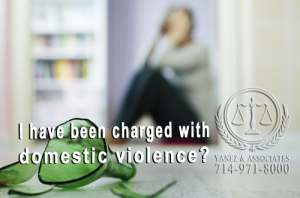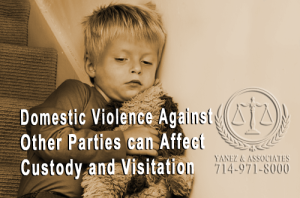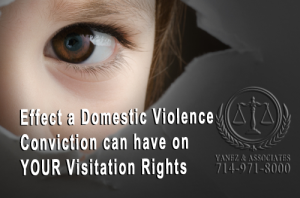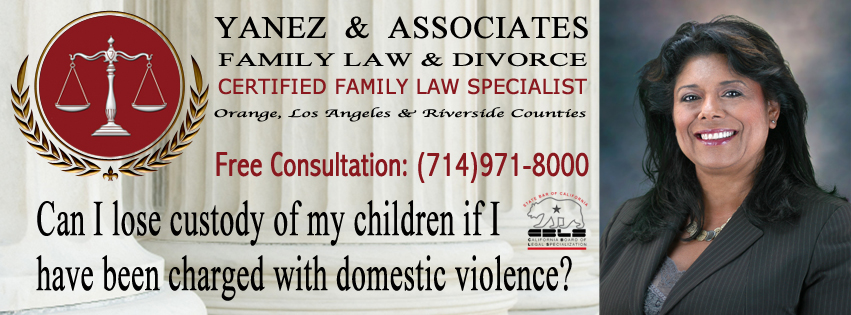California Law Regarding Child Custody & Visitation Rights of Parents in Domestic Violence Cases
Can I lose custody of my children if I have been charged with domestic violence?: Abuse can be physical, mental, emotional, financial, or sexual. Domestic abuse occurs between people with an existing relationship, including the following:
• People who have been in a romantic relationship, like spouses, boyfriend and girlfriend, or domestic partners,
• People who currently or formerly lived together,
• People who are related either by blood or by marriage,
• People who have children together, or
• Parents who abuse children.
The most important part of any child custody arrangement is that it is made in the best interest of the child.
If one parent has been convicted of domestic violence, or has been abusive towards either the other parent or the child, it is important to have a child custody arrangement in place that protects both the parent and the child.
However, this does not mean that a parent who has previously been accused of or charged with domestic violence can never have custody of, or visitation with a child.
Determining that a Parent has Committed Domestic Violence
If a judge determines that there is domestic violence involved in a custody case, there are specific laws to follow regarding child custody and visitation rights of parents who have been convicted of domestic violence.
A custody and visitation case is considered to involve domestic violence if either of the following conditions have been met:
• A parent has been convicted of domestic violence against the other parent in the last five years, or
• A court has determined that a parent has committed domestic violence against the other parent or the child in the last five years.
Domestic Violence, Protective Orders and Parental Rights
If one parent has a restraining order against the other due to domestic violence, a temporary domestic violence restraining order can affect child custody as long as the restraining order is in place.
When a request is made for a domestic violence restraining order, the process begins with a temporary order that lasts until the first court date. This temporary order can prevent the restrained person from having custody of the child, spending time in the family home or vehicle, or being within a distance of places that the rest of the family frequents.
Once a hearing has been held, a judge can issue a permanent or long term restraining order that can last up to five years. This restraining order, like the temporary order, can also disallow child custody and visitation, but require child support.
Awarding Custody or Visitation Rights to a Parent After a Domestic Violence Conviction
Placing a child in a home where domestic violence occurs can be detrimental to a child, according to the State of California. In most cases, an abusive parent, or a parent who has committed domestic violence cannot be awarded either joint or sole custody of a child in California. However, the parent could still be awarded visitation rights, usually in the form of supervised visitation.
If a judge believes it is not in the child’s best interest to be in the custody of a parent who has committed domestic violence, the judge has to apply a rebuttable presumption.
California law says that in order to have either joint or sole custody of his or her child, a parent who has committed domestic violence must have enough evidence to overcome the rebuttable presumption. To overcome rebuttable presumption, the parent must have accomplished the following:
• The parent must prove to the court that awarding either joint or sole custody to this parent is in the best interest of the child;
• The parent has successfully completed a one year batterer intervention program;
• The parent has successfully completed a parenting class, if it has been ordered by the court;
• If the court has ordered it, the parent must have successfully completed substance abuse counseling;
• If the parent is on probation or on parole, he or she must have complied with the terms of his or her probation or parole;
• If there is a restraining order against the parent who has committed domestic violence, he or she must have followed the terms of the restraining order; and
• The parent cannot have committed any more acts of domestic violence.
Domestic Violence Against Other Parties can Affect Custody and Visitation
When creating a child custody order for a child, a judge must consider domestic violence that has occurred between a parent, and any of the following people in the parent’s life.
• Any child who is related to the parent through blood or marriage,
• Any child for whom the parent was responsible at any time,
• The child’s other parent,
• The parent’s parent, spouse, fiancé, fiancée, girlfriend, boyfriend, roommate, or any other person seeking custody of the child.
The Effect a Domestic Violence Conviction can have on Visitation Rights
It is always assumed to be in the best interest of a child to spend time with both parents. However, it is not in the best interest of the child to witness domestic violence.
Usually, this means that a California court will only allow a child to spend time with a parent who has committed domestic violence under supervision of another adult, the other parent, or a professional. The judge may also choose to disallow overnight visits.
If a protective order has been issued, a court may disallow visitation rights with the abusive parent altogether.
I have been charged with domestic violence and need a Child Custody and Family Law Attorney in Orange County
Whether you have been convicted of domestic violence and you are looking to obtain custody or visitation rights to your children, or you are a parent either facing domestic violence, or trying to protect your children from domestic violence or a violent person, it is in your best interest to contact an attorney.
The experienced family law attorneys at Yanez & Associates have successfully handled divorce cases, domestic violence cases, restraining orders, child custody cases and child visitation cases. Contact us today to schedule a free, initial consultation where we can discuss the specifics of your case, and help you obtain the best child custody order for your children.














